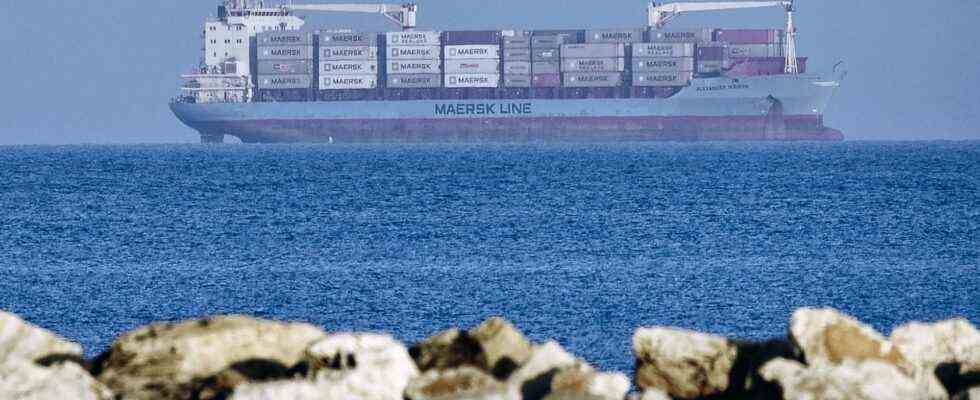Status: 08/24/2021 4:19 p.m.
Shipping is seen as a significant factor in climate change. The largest container ship operator in the world wants to reduce emissions – and
has therefore ordered eight giant freighters with methanol propulsion.
The Danish container shipping company Möller-Maersk wants to significantly reduce the CO2 emissions of its ships. The company has now ordered eight large ships that can also run on “green” methanol. The container ships should be ready for use from 2024. They each have a capacity of around 16,000 standard containers (TEU) and are intended to reduce the shipping company’s CO2 emissions by one million tonnes a year. In 2020, Maerk’s fleet produced a total of 33 million tons.
“Green” methanol is used when the liquid, colorless and easily combustible alcohol is not produced with the help of fossil fuels such as coal or gas, but with renewable energies. CO2 can also be used directly as a raw material in production. However, some critics consider it problematic that methanol is then burned again in the drive and carbon dioxide is released. However, less particulate matter or other air pollutants are released with this fuel than with marine diesel or heavy fuel oil.
According to the shipping company, the new ships will be built by the South Korean company Hyundai Heavy Industries in cooperation with the Augsburg-based ship engine manufacturer MAN ES. Maersk also contracted Hyundai to secure an option for four more methanol-powered container ships from 2025.
Climate pollution from large freighters
Shipping makes an enormous contribution to environmental pollution and climate change – according to a study by the French research institute Isemar, even more than air traffic on a global level. It is therefore time to act to tackle the climate challenges facing the industry, said Maersk’s decarbonization manager Morten Bo Christansen. The shipping company is also reacting to the efforts of its customers to make the supply chains “greener”. Maersk itself wants to be climate-neutral by 2050.
“We think it is the best way to be CO2-neutral one day,” said Christiansen. One problem, however, is to obtain the required quantities of bio-methanol. “But we will make it,” said the manager. As a fuel in maritime shipping, methanol is still a relatively new and so far little tested concept. However, in a pilot project, the Swedish Maritime and Inland Navigation Authority had equipped an existing pilot boat with a diesel engine that had been converted to burn methanol and had positive experiences.
Methanol propulsion for German research ship
In June, Maersk had ordered a 2100 container ship with a methanol drive from the Korean company KSOE for the first time. It is scheduled to go into operation in mid-2023. Because this order was two years in advance and the experience gained there can be used, the decision has now been made to order larger container ships with methanol propulsion, explained Christiansen.
The first German ship powered by methanol is the new research cutter “Uthörn”, which is to replace the ship of the Alfred Wegener Institute for Polar and Marine Research (AWI), which has been in operation since 1982. The 35-meter-long research ship is currently being built at the Fassmer shipyard in Berne, Lower Saxony, and should be ready for use in October 2022.

